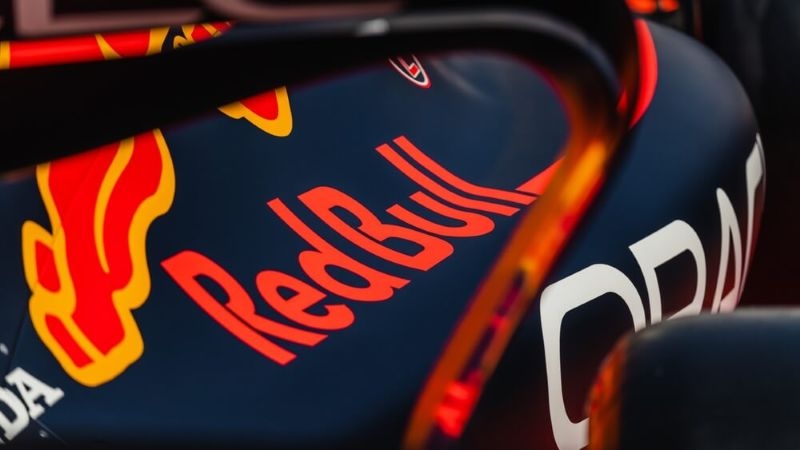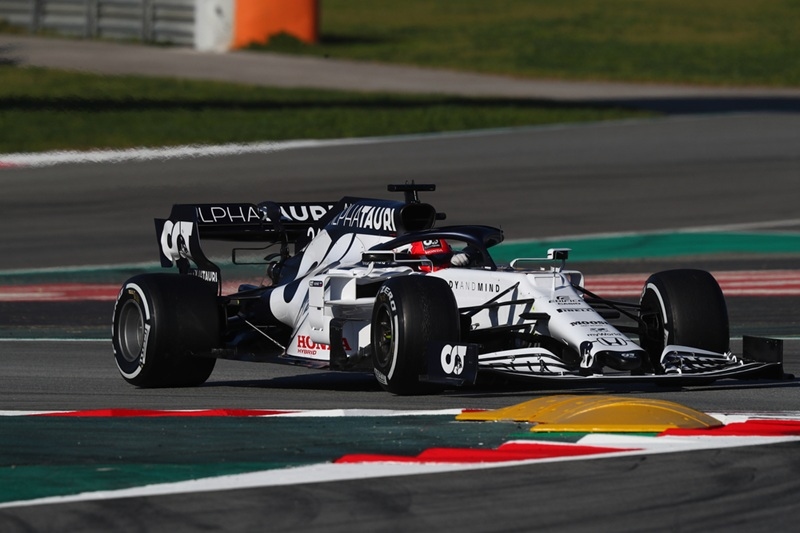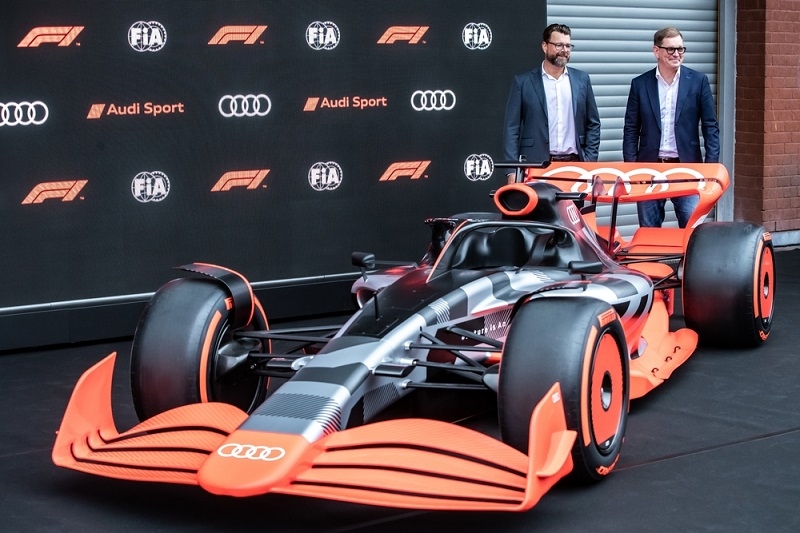Unveiling Significance of Pole Position in Formula 1 Racing

Image Source: Radio times
So, we often use 'pole position' in everyday talk for lots of stuff. Like if you're up for a job and think you're the top candidate, you'd say you're in pole position. But, originally, this term comes from motorsports. We're diving into what exactly 'pole position' means and why it's a big deal. Basically, 'pole position' is the first spot on the starting grid in a Grand Prix. The driver who snags pole position in a Formula One race gets to start first, even if it's just by a little bit. Drivers earn their grid spots, including the pole, during the qualifying rounds before the race. The driver who nails the fastest lap in Q3, the third qualifying round, grabs the pole and starts at the front. Being in pole position means you start a bit ahead of the second car and are usually closer to the first turn. The pole spot can be on the left or right side of the grid, depending on the first corner's angle in the race.
Pole Position Came From Horse Racing
We use 'pole position' in motorsports and everyday life, and most people think it comes from racing. But actually, it started in horse racing, where it described a horse that got to start on the inner pole after winning a race. In F1, drivers can be leading during different parts of qualifying, but the real pole position is set in 'Q3'. In 2021, sprint races were added to F1. The sprint race results set the starting grid for the main race. The sprint race winner used to get pole position for Sunday's race, but in 2022, they changed it back to the official qualifying deciding pole. By 2023, they tweaked it again with a separate session for the sprint.
You May Also Like: The Ultimate Guide to Formula 1 Terminology: Everything You Need to Know About F1 Jargon
Pole Position is Vital for Challenging Tracks
Just like certain horse racing tracks suit specific horses, different F1 circuits give various advantages, especially for those starting in pole position. Some tracks make overtaking easier and races more exciting, while others are tough to pass on, making it hard to get ahead of the front-runners. Take Monaco's Monte Carlo street circuit, for example. About 75% of races there are won by the pole sitter because the track is super tight and overtaking is really tough. Sure, crashes and pit stop strategies can shake things up, but Monaco is still a big deal for those on the pole, making qualifying setups crucial. On the flip side, look at Germany's Nurburgring. Not many pole sitters win there. It's a favorite for both drivers and fans because it really tests the cars, making it hard for teams to just start at the front and block everyone else.
The Nurburgring is also great for overtaking, which naturally lowers the win rate for those in pole position. So, how much pole position affects a race can vary. Is the driver the best out there? Is their car top-notch? If yes, and they snag the pole, then stats show they have a good shot at winning. But a lot depends on the track. You'd be less confident about turning a pole position into a win on a track that's wide and great for overtaking.
Pole Position Advantage Keeps Varying

Image Source: Quora
Being on the pole in an F1 race is definitely an advantage. No debate there. The real question is how big of an advantage it is. We can't put an exact number on it because F1 is super complex. Things like track type, temperature, car, driver, and a bunch of other factors all play a role in how much of an edge pole position gives. Some folks think just starting first gives an unbeatable advantage, but that's not really it. The key thing is the driver's skill to get on the pole in the first place, which usually means they're also the fastest in the race. Stats show that more than 40% of F1 winners have started from the pole, which is pretty impressive considering the number of drivers.
That 40% stat shows that generally, pole sitters have an edge. But things have evolved. Back in the day, safety wasn't as good, so more crashes meant the pole sitter often didn't finish the race, let alone win. Nowadays, cars are way more reliable, so a strong driver on pole is more likely to win. Plus, safety measures have made overtaking tougher, reducing the chances of someone from the back winning. While stats change, old-timers like Ayrton Senna won about half the races they started on the pole. Compare that to Lewis Hamilton, who has around a 60% success rate when starting first.
Similar Reads You May Enjoy: Unveiling the Halo: The Future of F1 Driver Safety
All-Time Pole Positions for 2024 Drivers
Lewis Hamilton leads the pack for the most pole positions in F1 history, nearly matching the combined total of the other 12 drivers on this list! Here's a breakdown of how many pole positions each 2024 F1 driver has and their rank on F1's all-time list. In 2021, pole positions for three races were awarded to the Saturday sprint race winners instead of the fastest in Friday qualifying, and our numbers reflect this. Under the old system, Hamilton would gain two poles, Max Verstappen would lose two, and Valtteri Bottas would gain one (for fastest in Italy before a grid penalty) but lose one (to Hamilton in Brazil).
#1 all-time: Lewis Hamilton - 104 Poles
Hamilton broke Michael Schumacher's pole record at the 2017 Italian Grand Prix with his 69th pole. He has since added 35 more, making him F1's top qualifier. Mercedes' dominance in the hybrid era helped, with Hamilton snagging 71 poles between 2014 and 2021. He had just one more since then, at the 2023 Hungarian GP, beating Verstappen by 0.003 seconds.
#5 all-time: Max Verstappen - 39 Poles
Max Verstappen's pole streak for the first seven races of 2024 lifted him past legends like Nigel Mansell, Alain Prost, and Jim Clark to fifth all-time. He also tied Ayrton Senna for consecutive poles at eight. He's got a way to go to catch Sebastian Vettel, who's fourth with 57 poles. Despite Red Bull's focus on race performance, Verstappen has racked up 26 poles since 2022.
=#12 all-time: Charles Leclerc - 24 Poles
Leclerc has the most poles of any driver without a world championship. His latest was at the inaugural Las Vegas Grand Prix. Known for his single-lap speed, Leclerc's reputation as a 'choker' is undeserved. His low win count is more about Ferraris cars not matching his qualifying performance.
#15 all-time: Fernando Alonso - 22 Poles
Alonso isn't known for qualifying prowess, with his last pole in 2012 at the German GP. He's raced 192 grands prix since without a pole. He nearly got one at the 2023 Monaco GP, missing out by 0.084s. At 42, Alonso could still add to his tally if Aston Martin delivers a fast car in 2024.
=#16 all-time: Valtteri Bottas - 20 Poles
All of Bottas's poles came with Mercedes between 2017-2021. His last was in Mexico in 2021. Now with the mid-tier Stake team, his chances of adding more poles are slim. Hamilton praised Bottas's one-lap speed, though Bottas scored fewer poles than Nico Rosberg did as Hamilton's teammate.
=#47 all-time: Carlos Sainz - 5 Poles
Sainz, being Leclercs teammate, often finds Leclerc setting the poles when Ferrari is fast enough. But Sainz steps up when Leclerc has off days, like in Singapore and Italy in 2023.
=#57 all-time: Daniel Ricciardo - 3 Poles
Ricciardo hasn't had a pole since leaving Red Bull in 2018. His peak came during Red Bull's less successful hybrid era, which doesn't reflect his true speed. He's smooth and fast when the car has a stable balance.
=#57 all-time: Sergio Perez - 3 Poles
Perez's poles all came in 2022 and 2023 with Red Bull. His first pole in Saudi Arabia 2022 was a standout, beating Verstappen and Ferrari drivers in a tight battle.
=#66 all-time: George Russell - 2 Poles
Russell's big qualifying moment was at the 2022 Hungarian GP, narrowly beating Sainz. His second pole came at the 2024 Canadian GP. The Mercedes cars he's driven haven't been top-tier, but he's shown his talent with standout performances at Williams and nearly setting pole on his Mercedes debut in 2020.
=#73 all-time: Nico Hulkenberg - 1 Pole

Image Source: Reddit
Hulkenberg's sole pole came in his 2010 rookie season with Williams at Interlagos in mixed conditions. He was a top junior talent and outperformed veteran teammate Rubens Barrichello by season's end.
=#73 all-time: Lance Stroll - 1 Pole
Stroll's only pole was during the 2020 Turkish GP in tricky conditions. He's shown flashes of brilliance, like in his rookie season with Williams in 2017.
=#66 all-time: Lando Norris - 2 Poles
Norris ended a three-year drought with the pole at the 2024 Spanish GP. His first pole was in the wet at the 2021 Russian GP, a race he nearly won. He also has two sprint race poles, but he doesn't count those.
=#73 all-time: Kevin Magnussen - 1 Pole
Magnussen's unexpected pole came at the 2022 Brazilian GP in mixed weather. Haas put him out at the right time, but he was fast throughout qualifying. He's capable of standout performances when conditions are right.
Conclusion
Pole position in Formula 1 racing holds immense significance, often acting as a crucial determinant of a race's outcome. Securing pole position not only offers a strategic advantage by placing a driver at the front of the grid, but it also serves as a psychological boost, signaling superior performance during qualifying sessions. The benefits extend beyond the start of the race, providing a clear track ahead, minimizing the risk of early collisions, and offering the best opportunity to dictate race pace.
This content was created by AI




